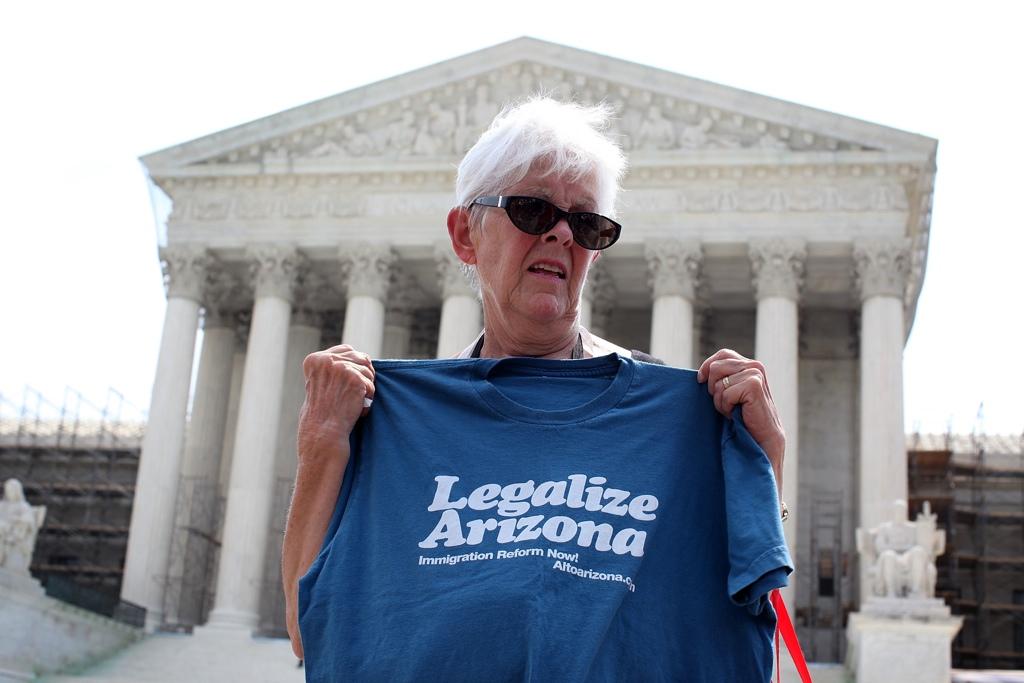Illegal immigration: Judge green lights Arizona’s ‘show me your papers’ law
Jane Pauk, of Phoenix, Ariz., pushed for support of her state’s controversial immigration reform in front of the US Supreme Court.
A federal judge ruled today that Arizona authorities can enforce the most contentious section of the state’s tough immigration law — the so-called "show me your papers" provision.
US District Judge Susan Bolton's ruling allows officers to question the immigration status of those they suspect are in the country illegally — provided they are stopped for other reasons.
However, the Wall Street Journal pointed out that Bolton's ruling contained a victory for opponents also, by barring the part of the law that makes it a state crime to harbor or transport undocumented immigrants.
The ruling upholding the "show me your papers" provision — also known as Section 2B — comes after a two-year legal battle initiated by the Obama administration which argues that it would lead to systematic racial profiling, the Associated Press wrote.
Although a US Supreme Court in June upheld the provision, the administration claimed a victory in the court's ruling that local police could not detain anyone on an immigration violation unless federal immigration officials ordered it.
Opponents had asked Bolton to block the provision outright, however, arguing that it would lead to unconstitutional racial profiling of Latinos.
However, Bolton ruled that the court could not block the provision based on the possibility of racial profiling, citing the June decision by the Supreme Court.
Arizona Gov. Jan Brewer, who signed SB 1070 into law in spring 2010, said in a statement cited by USA Today:
"With this provision, Arizona makes a clear statement that it will not tolerate sanctuary city policies, and will now have thousands of additional officers to collaborate with the federal government as state and local law enforcement do what they always have: enforce the law."
The law was aimed at combating illegal immigration in the state, which borders Mexico and, according to Reuters, is home to an estimated 360,000 undocumented immigrants.
More from GlobalPost: Supreme Court strikes down parts of Arizona immigration law
The story you just read is accessible and free to all because thousands of listeners and readers contribute to our nonprofit newsroom. We go deep to bring you the human-centered international reporting that you know you can trust. To do this work and to do it well, we rely on the support of our listeners. If you appreciated our coverage this year, if there was a story that made you pause or a song that moved you, would you consider making a gift to sustain our work through 2024 and beyond?
